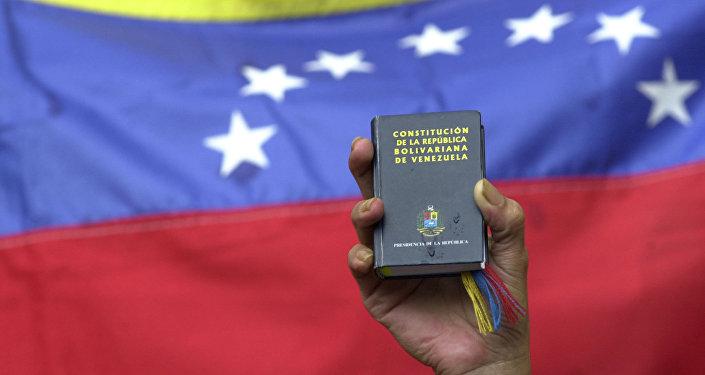No Referendum Needed for Constituent Assembly, Venezuela’s Top Court Rules

Venezuela
Venezuela’s highest court dealt a blow to the country’s opposition Wednesday, when it ruled President Nicolas Maduro can call a constituent assembly without a prior referendum.
Maduro announced the formation of a constituent assembly in May, when he argued the initiative could help resolve Venezuela’s deep political impasse. The elected assembly will have the power to rewrite the country’s constitution.
While grassroots movements have largely welcomed the initiative, Venezuela’s right-wing opposition has argued that the move is "fraudulent". They claim that a national referendum needs to be held to ask voters whether they want to reform the current constitution before moving ahead.
In its ruling Wednesday, the Supreme Court (TSJ) dismissed that claim, stating Maduro acted within the constitution when he called the assembly. The ruling stated Maduro does not need to call a referendum to convoke the assembly.
“Article 347 of the constitution states that it is in the people, as the bearer of sovereignty, that the original constituent power resides. However, Article 348 states that the initiative to exercise the call for a constituent [assembly] is [invested in], among others, the president of the republic,” the TSJ ruled.
According to article 348 of the constitution: "The initiative for calling a National Constituent Assembly may emanate from the President of the Republic sitting with the Cabinet of Ministers; from the National Assembly, by a two-thirds vote of its members; from the Municipal Councils in open session, by a two-thirds vote of their members; and from 15% of the voters registered with the Civil and Electoral Registry".
The Supreme Court decision effectively ends the last legal challenge to Maduro’s proposed constituent assembly. Preparations for the assembly have already begun, with elections for assembly members set to take place in July. Nonetheless, the TSJ’s latest ruling has been condemned by Venezuela’s main opposition coalition, the MUD. They have claimed the TSJ’s interpretation of the constitution contradicts a training manual from the Education Ministry, which has been used in primary school classrooms.
“It is clearly stated here that in order for a national constituent assembly to be convened there must be a referendum,” MUD legislator Tomas Guanipa stated, according to newspaper El Nacional.
Guanipa also urged supporters to join fresh protests planned for Saturday against Maduro.
Government supporters have hit back by arguing the TSJ is the highest interpreter of the constitution, not the Education Ministry.
The government itself has largely welcomed the ruling, though the MUD has long accused the TSJ of being stacked with pro-government judges. A similar complaint was made by a former high level court official, who resigned shortly after the ruling was made public.
In a resignation letter shared on social media, former TSJ legal consultant Gabriela Ramirez argued the ruling was a betrayal of the legacy of Maduro’s predecessor, Hugo Chavez.
She continued by stating her resignation was due to the TSJ’s decision to allow Maduro to “hold a national constituent assembly to re-found the republic without previously consulting the people."
The president has confirmed that the Venezuelan public will be able to vote on whether or not to approve the new Constitution drafted by the National Constituent Assembly.
Disclaimer: The views expressed here are the author's personal views, and do not necessarily represent the views of Newsclick.
Get the latest reports & analysis with people's perspective on Protests, movements & deep analytical videos, discussions of the current affairs in your Telegram app. Subscribe to NewsClick's Telegram channel & get Real-Time updates on stories, as they get published on our website.
























